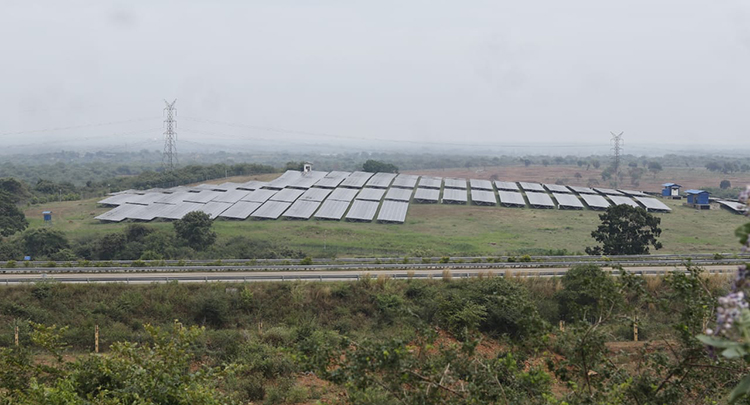Business
Central Bank of Sri Lanka adopts further policy measures to strengthen macroeconomic stability

Economic activity is expected to record a gradual recovery following a temporary setback
Monetary Policy Review: No. 01 – January 2022
As per the data released by the Department of Census and Statistics, domestic economic activity that was disrupted with the outbreak of the third wave of the COVID-19 pandemic and related mitigative measures is estimated to have contracted by 1.5 per cent, year-on-year, during the third quarter of 2021. However, economic activity towards the latter part of 2021 appears to have gathered momentum as several leading indicators point towards activity returning to normalcy along with the successful vaccination drive of the Government. Accordingly, the economy is expected to have recorded a growth of around 4.0 per cent in 2021.
External sector remains resilient amidst heightened challenges
With the normalisation of global economic activity, a notable improvement in export performance was observed, with monthly exports remaining in excess of US dollars 1 billion, consecutively since June 2021. Meanwhile, expenditure on imports increased significantly, partly reflecting the increased international prices, the demand for intermediate goods, and a more than expected demand for consumer goods. The increase in imports was also underpinned by the availability of low cost credit, which led the trade deficit to widen to pre-pandemic levels in 2021. Meanwhile, developments in the tourism sector appear to be promising with the influx of tourists in recent months.
Although inflows in the form of workers’ remittances have reduced somewhat in the latter half of 2021, the introduction of special incentive schemes and the actions taken by the authorities to curb illegal fund transfers have generated renewed interest in routing funds through formal channels. The Sri Lanka rupee depreciated by 7.0 per cent against the US dollar in 2021 and has been broadly stable thus far in 2022. At the same time, the Central Bank was able to fulfil the timely settlement of the International Sovereign Bond (ISB) of US dollars 500 million on 18 January 2022. As of end 2021, the gross official reserves were estimated at US dollars 3.1 billion. 2
Credit flows to the private sector continue to expand
Credit extended to the private sector, which slowed down during September and October 2021, has picked up recently, partly reflecting the increased credit flows to finance imports. In the meantime, credit obtained by the public sector from the banking system, particularly net credit to the Government, continued to expand. Despite the recent deceleration observed due to the decline in net foreign assets of the banking system, with the significant expansion in domestic credit, the growth of broad money (M2b) remained elevated by end November 2021. Meanwhile, most market lending rates have adjusted upwards, while deposit rates have also increased albeit at a slower pace.
Further, yields on government securities have increased amidst enhanced market subscriptions at primary auctions for government securities.
Supply side factors remain the key driver of domestic price pressures amidst the possible signs of demand pressures
Inflationary pressures in the domestic front continued to be fuelled by supply side disruptions, upward adjustments to administered domestic prices, and the strengthening of underlying demand conditions in the economy as reflected in the rise in core inflation. Such supply driven price pressures are expected to be transitory, although the possible build-up of demand driven inflationary pressures may compel the adoption of proactive monetary policy measures, which will also help in managing inflation expectations.
Monetary and other policy measures are expected to strengthen the macroeconomic stability
In consideration of the current and expected macroeconomic developments, the Monetary Board of the Central Bank of Sri Lanka, at its meeting held on 19 January 2022, decided to adopt several policy measures with the view to strengthening macroeconomic stability. Accordingly, the Monetary Board decided to:
a)
increase the Standing Deposit Facility Rate (SDFR) and the Standing Lending Facility Rate (SLFR) of the Central Bank by 50 basis points each, to 5.50 per cent and 6.50 per cent, respectively;
b )
distribute the financing of essential import bills for fuel purchases among the licensed banks in proportion to their foreign exchange inflows;
c )
mandate all registered tourist establishments to accept foreign exchange only in respect of services rendered to persons resident outside Sri Lanka;
d )
extend the payment of an additional Rs. 8.00 per US dollar for workers’ remittances paid in addition to the incentive of Rs. 2.00 per US dollar offered under the “Incentive Scheme on Inward Workers’ Remittances” until 30 April 2022, reimburse the transaction cost borne by Sri Lankan migrant workers through the payment of Rs. 1,000 per transaction, when remitting money to rupee accounts via licensed banks and other formal channels with effect from 01 February 2022 and introduce higher interest rates for both foreign currency and rupee denominated deposits of migrant workers.
The Monetary Board was of the view that the above measures will curtail the possible build-up of underlying demand pressures in the economy, which would also help ease pressures in the external sector, thus promoting greater macroeconomic stability. In keeping with this policy stance, the Central Bank expects a corresponding increase in interest rates, particularly in deposit rates, thereby encouraging savings, while discouraging excessive consumption, which also fuels imports. Therefore, financial institutions are urged to swiftly pass on this increase to deposit rates of the customers. Moreover, the anticipated adjustment in market interest rates will facilitate the reduction in the Treasury bill holdings of the Central Bank through increased market subscriptions, as enunciated in the Six-Month Road Map for Ensuring Macroeconomic and Financial System Stability. Meanwhile, the materialisation of the expected foreign exchange inflows through bilateral arrangements and other import financing arrangements with friendly countries are expected to ensure a healthy level of gross official reserves in the period ahead and further strengthen the external sector in the economy.
Business
Lanka’s largest solar park set to transform energy landscape and local economy in Hambantota

A new era in Sri Lanka’s renewable energy is unfolding in the Gonnoruwa Division of Hambantota District, where construction has begun on the country’s largest solar power park. Spanning 450 acres and designed to generate 150 megawatts (MW) of electricity, the US$150 million private-sector-led project is poised to become a cornerstone of the nation’s sustainable energy ambitions.
Officials say the solar park, guided by the Sustainable Energy Authority and the Mahaweli Authority, will make its first contribution to the national grid by the end of this year, with full capacity expected by 2026. Once completed, the facility will rank among Sri Lanka’s largest renewable energy installations, second only to the 210 MW Victoria Dam and the 150 MW Upper Kotmale hydropower project.
The initiative is being framed as a strategic response to recurring power cuts in the Southern Province during annual drought periods. With a projected 20% contribution to the country’s daytime electricity demand, the solar park is expected to significantly stabilize the grid, reduce reliance on fossil fuels, and contribute to the country’s renewable energy targets.
Project Engineer Thilanka Bandara confirmed that preliminary land preparation and boundary works have been completed, with 50 MW already feeding into the national grid. The investment, fully funded through foreign direct investment, local bank loans, and equity capital, requires no government funding. Two private firms are sharing the development, contributing 70 MW and 80 MW respectively.
Bandara highlighted a unique feature of the project: the transmission infrastructure, estimated at US$16 million, is entirely financed by the investors, marking a departure from conventional grid-connected projects. The park will also employ state-of-the-art ground-mounted solar technology, considered the most advanced currently deployed in Sri Lanka.
In a first for Sri Lanka, the solar panels will be installed five feet above the ground, allowing partial-shade crops to be cultivated underneath. Technical Officer Sithmina Bandara explained that this setup will enable the cultivation of food plants such as mushrooms, which thrive in shaded conditions, creating a model for integrated solar-agriculture systems. Agricultural experts have already provided guidance on implementing this initiative, which combines energy production with local food security.
The project is expected to generate 750 to 1,000 direct and indirect jobs, with 400–500 already employed in the initial phase. Long-term maintenance work will provide further employment opportunities, offering a substantial economic boost to the Hambantota region. Environmental management measures are also in place to prevent elephants from entering nearby villages, ensuring harmony between development and wildlife.
All necessary approvals and permits were obtained by February 2025, aligning the project with the Ceylon Electricity Board’s national generation plan. Officials confirmed that upon completion, the total output of the Solar Energy Park will rise to 200 MW, combining existing installations with the new 150 MW facility.
Experts say the Hambantota solar park represents more than just a power generation project. Its innovative design, private-sector financing, and integrated agricultural approach position it as a template for future renewable energy projects in Sri Lanka, reflecting a new model of sustainable development that balances energy, economy, and environment.
By Sirimanta Ratnasekera
Business
ESU Kandy clinches dominant victory at ‘Battle of Esoftians’

The Battle of Esoftians, an annual cricket encounter organized by ESOFT Uni Kandy, concluded with a spectacular display of cricketing prowess as the Kandy team secured a massive 245-run victory over ESOFT Metro Campus, Kurunegala. The match was held on the 15th at the University of Peradeniya Grounds.
Winning the toss and electing to bat first, the ESOFT Uni Kandy batsmen dominated the field from the outset. They showcased an explosive batting performance, posting a formidable total of 280 runs for the loss of 5 wickets in their allotted 20 overs.
In response, the Kurunegala ESOFT Metro team struggled against a disciplined bowling attack. The Kandy bowlers dismantled the opposition’s batting lineup, bowling them all out for a mere 35 runs, sealing a historic win for the Kandy campus.
The event was graced by the presence of key officials from the ESOFT management: Amila Bandara – Chief Operating Officer (ESOFT Uni), Dimuthu Thammitage – General Manager (Central Region), Lakpriya Weerasinghe – Deputy General Manager, ?Lahiru Diyalagoda
Centre Manager-Degree Division, ESOFT Metro Campus Kurunegala and Dushantha Sandaruwan – Master in Charge (ESU Kandy Cricket Club)
Team Lineups
ESOFT Uni Kandy (Winners)
Chamath Ekanayake (Captain), Dinuka Tennakoon (Vice Captain), Dushantha Sandaruwan (MIC), Chalitha Rathnayake, Pulasthi Bandara, Isuru Dehigama, Kesara Nuragoda, Aadhil Sherif, Isuru Pannala, Achintha Medawatta, Ahamed Shukri, Gowtham Hari Dharshan, Danushka Sahan, Eranda Bandara, and Damith Dissanayake.
ESOFT Metro Campus Kurunegala (Runners-up)
Adeesha Samarasekara, Savishan Madusha, Lahiru Diyalagoda, Hirun Damayantha, Naveen Madushanka, Daham Pothuwewa, Senuda Thewnaka, M.R. Abdulla, Arunodya Dasun, Mohamad Afri, Desith Perera, Lasitha Ranawaka, Anton Dilon, Shenuka Thirantha, and Kavindu Bandara.
Text and Pix By S.K. Samaranayake
Business
HNB joins Royal–Thomian “Battle of the Blues” as official banking partner

HNB PLC, Sri Lanka’s leading private sector bank, has joined as the Official Banking Partner for the 147th edition of the historic “Battle of the Blues,” the Royal–Thomian cricket encounter between Royal College, Colombo, and S. Thomas’ College, Mt. Lavinia. Commenting on the partnership, HNB’s Managing Director/CEO Damith Pallewatte highlighted the bank’s long-standing connection with cricket, including sponsorship of Sri Lanka’s first Test match against England in 1982, and emphasized HNB’s commitment to nurturing young talent and promoting school cricket. The three-day clash for the Rt. Hon. D. S. Senanayake Memorial Shield will take place from March 12–14 at the SSC Grounds, with the Mustangs Trophy one-day match following on March 28 under lights. HNB’s inaugural involvement marks a milestone in the bank’s sports marketing journey, strengthening its role in the school cricket ecosystem. The bank will enhance the spectator experience by introducing digital and cashless banking solutions, modernizing the event while preserving its rich heritage and sporting tradition.
-

 Features19 hours ago
Features19 hours agoWhy does the state threaten Its people with yet another anti-terror law?
-

 Business7 days ago
Business7 days agoMinistry of Brands to launch Sri Lanka’s first off-price retail destination
-

 Features19 hours ago
Features19 hours agoVictor Melder turns 90: Railwayman and bibliophile extraordinary
-

 Features18 hours ago
Features18 hours agoReconciliation, Mood of the Nation and the NPP Government
-

 Latest News2 days ago
Latest News2 days agoNew Zealand meet familiar opponents Pakistan at spin-friendly Premadasa
-

 Latest News2 days ago
Latest News2 days agoTariffs ruling is major blow to Trump’s second-term agenda
-

 Features19 hours ago
Features19 hours agoVictor, the Friend of the Foreign Press
-

 Latest News2 days ago
Latest News2 days agoECB push back at Pakistan ‘shadow-ban’ reports ahead of Hundred auction














